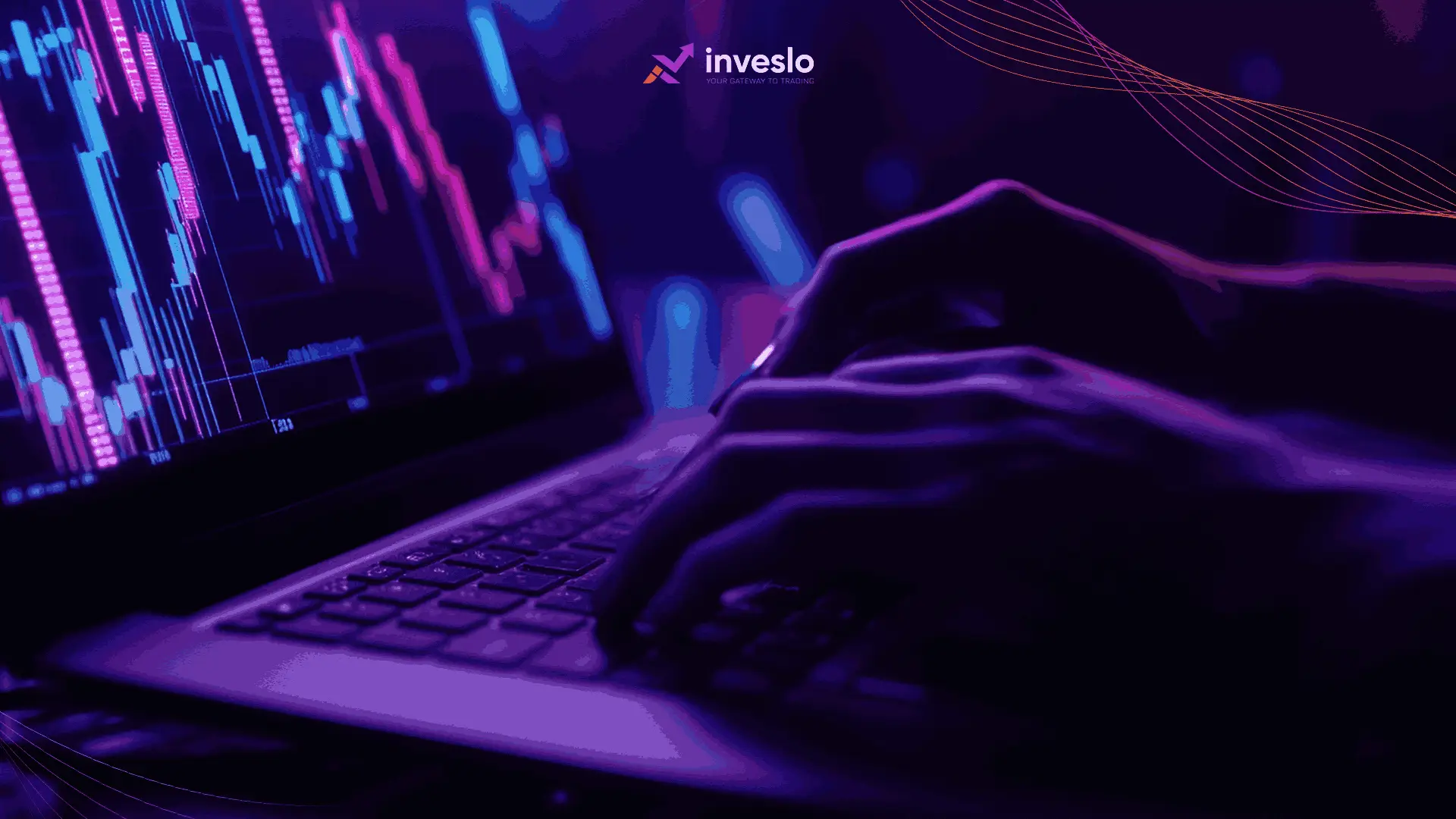
Best Ways to Learn Forex Trading for Beginners
Forex trading has become wildly popular as one of the easiest-access financial markets in the world. With the right mindset, anyone can become a forex trader, even if they are just starting, thus developing their trading skills and experience. But what it really comes down to is learning the forex fundamentals, working through their trading strategies, and choosing to be disciplined at each stage of their trading journey.
If you want to learn forex trading step by step, then this article should be a complete guide to follow. We will highlight what you need to know, what you need to do, and the best way to develop confidence as a beginner in the market.
What is Forex Trading - Understanding the Basics?
Foreign exchange or forex or currency trading is the buying and selling of currencies with the intention of earning a profit. It is the largest financial market in the world; it is open 24/7, five days a week.
Forex trading is suitable for beginner traders for the following reasons:
- Accessibility: There is the ability to trade with small accounts.
- Flexibility: Overall, the market runs almost 24 hours a day.
- Opportunities: High liquidity and volatility; lots of opportunities for traders.
Learning forex trading step-by-step allows you not just to learn how to earn profits but also to learn how to manage risk.
Step 1: Build a Strong Foundation Through Forex Education
Like any other discipline, trading also demands training. Adequate time must be devoted to mastering the basics for new traders before they make their initial trades.
Key Topics to Learn:
- Currency pairs: Understand the currency pairs, including major, minor, and exotic pairs.
- Market participants: Learn about the different forex market participants, such as banks, businesses, and retail traders.
- Pips and Lots: Know the impact of currency price movements and lot sizes on your profit.
- Leverage and Margin: Understand leverage’s effect on returns and risks.
Resources For Beginners Forex Education:
- Beginners' Articles: Beginner-friendly ebooks and articles.
- Webinars: These sessions actively engage participants and address their questions.
- Beginners' Forex Trading Tutorials: Process comprehension facilitated by detailed instructional videos.
Having adequate knowledge helps you avoid rash spending at the beginning of your trading endeavours.
Step 2: Practice on a Forex Demo Account
Theoretical understanding without practice can lead to gaps. You can trade with a forex demo account provided by an online forex broker. A demo account allows new traders to trade in a true market environment in virtual currency.
Benefits of a Demo Account:
- Test trading platforms without the risk of losing money.
- Practice entering orders and putting stop loss and take profit levels.
- Try out different forex trading strategies.
- Practicing this way can allow you to have more confidence once transitioning into a live trading account.

Step 3: Learn Forex Trading Step by Step with a Structured Plan
New traders who have no prior experience in trading should not dive headfirst into complex trading strategies, as it will do more harm than good. New and experienced traders need to:
- Grasp the Essentials: Understand how currency pairs, spreads, and leverage work.
- Master Trading Software: Get to know MetaTrader and other platforms.
- Develop Risk Management: Understand how much capital should be risked per trade.
- Study Market Analysis: Look at both technical and fundamental analysis.
- Trade Small at First: Use micro-lots at the beginning for lesser exposure.
Making a smaller error and less damage to your bankroll is better when you learn trading methods.
Step 4: Learn From Forex Trading Tutorials for Beginners
Video tutorials, articles, and e-learning platforms are great resources because they simplify concepts into manageable lessons.
Here's what to look for:
- Clear explanation with examples of trades
- Live trading demonstrations
- Discussion of trading psychology, discipline, and so on
Tutorials provide visual and practical learning for novices, better encoding material more favourably for retention and transfer of quality capital trading.
Step 5: Join Webinars and Online Training Programs
Webinars are interactive and connect you directly to professionals. They let you ask questions, stay current with market knowledge, and learn what techniques are, and are not, currently working in the market.
Benefits of Webinars:
- Consumers remain in touch with current market news and updates.
- Traders learn advanced strategies gradually.
- Traders and investors can interact and discuss with legitimate professionals.
- Beginner traders and investors have a direct bridge from theory to practice.
Step 6: Explore Forex Trading Strategies
A trading journey is not complete without the use of strategies and approaches, so we recommend that beginners start with simple strategies before progressing to more complex strategies.
Some Strategies for Beginners:
- Trend Following: Trade with the trend.
- Breakout Trading: Trade when the price breaks a key level.
- Swing Trading: Hold your positions for days to catch medium-term moves.
All of these should be practiced on a demo before you apply them live to gain confidence.
Step 7: Learn Forex Risk Management Early On
Risk management is critical for long-term success. In its absence, no matter how perfect your strategy is, it is bound to collapse.
Key Principles:
- Do not risk more than 1%–2% of your capital in a single trade.
- Potential losses must be limited through the use of stop-loss orders.
- Do not concentrate on one currency pair; trade with multiple currency pairs instead.
Understanding risk management in the beginning helps in protecting your trading account and also in sustaining it for the long term.
Step 8: Open a Trading Account and Start Small
After practicing enough and developing a strategy, the next step is to open a live trading account.
Advice for beginners:
- Use micro or mini trading accounts to start.
- Focus on discipline instead of making money.
- Keep detailed trading journals so you can refer to your progress.
Trading small helps you build resilience and confidence, reaching for bigger positions.
Step 9: Learn From Mistakes and Keep Improving
Every trader, regardless of experience, makes mistakes. What you want to focus on is multiple things: how you learn from those mistakes.
- Going back over losing trades will always give you a chance to learn from your mistakes.
- You will always want to work on your strategy so that it is more effective over time based on market conditions.
- Begin working on staying disciplined and eliminating emotional trades.
Learning forex is a process and between experience and with enough practice and time, a beginner can become a consistent trader.
Final Thoughts
For new traders, the most effective ways to learn forex trading are establishing a solid foundation of knowledge, practicing on a demo account, participating in structured tutorials, using webinars, developing strategies and learning risk management techniques. Patience, discipline and ongoing learning leads to success.
If you are ready to embark on your forex trading journey, reach out to our trading experts today about customized support that can help you meet your financial goals.
Frequently Asked Questions
1. What is the best way for a complete beginner to start learning forex?
First, sign in to a few reputable forex websites and browse their blogs to get familiar with forex terms. Next, open a demo account to put theory into practice on a risk-free platform.
2. How long does it take to learn forex trading effectively?
While it depends, you should plan on at least 3 to 6 months of focused study and practice to familiarize yourself with the fundamentals. The learning process never truly ends as the markets change.
3. Do I need a lot of money to start forex trading?
No, many brokers have micro-accounts that can be funded starting at $100, which are ideal for those looking to learn rather than make large initial investments.
4. What are common mistakes beginners make in forex?
Attempting to trade too much, failure to implement risk controls, and trading based on emotions instead of sticking to a plan are the most common ones.
5. Is forex trading suitable for part-time learners?
Yes. The market operates from Monday to Friday, 24 hours a day, meaning that learning and trading can be done in one’s free time. Participation can begin through educational webinars.
6. How can I stay updated on forex market news?
Keep track of news with the help of economic calendars, sign up for informative newsletters from reputable firms, and participate in social networks that provide day-to-day news.